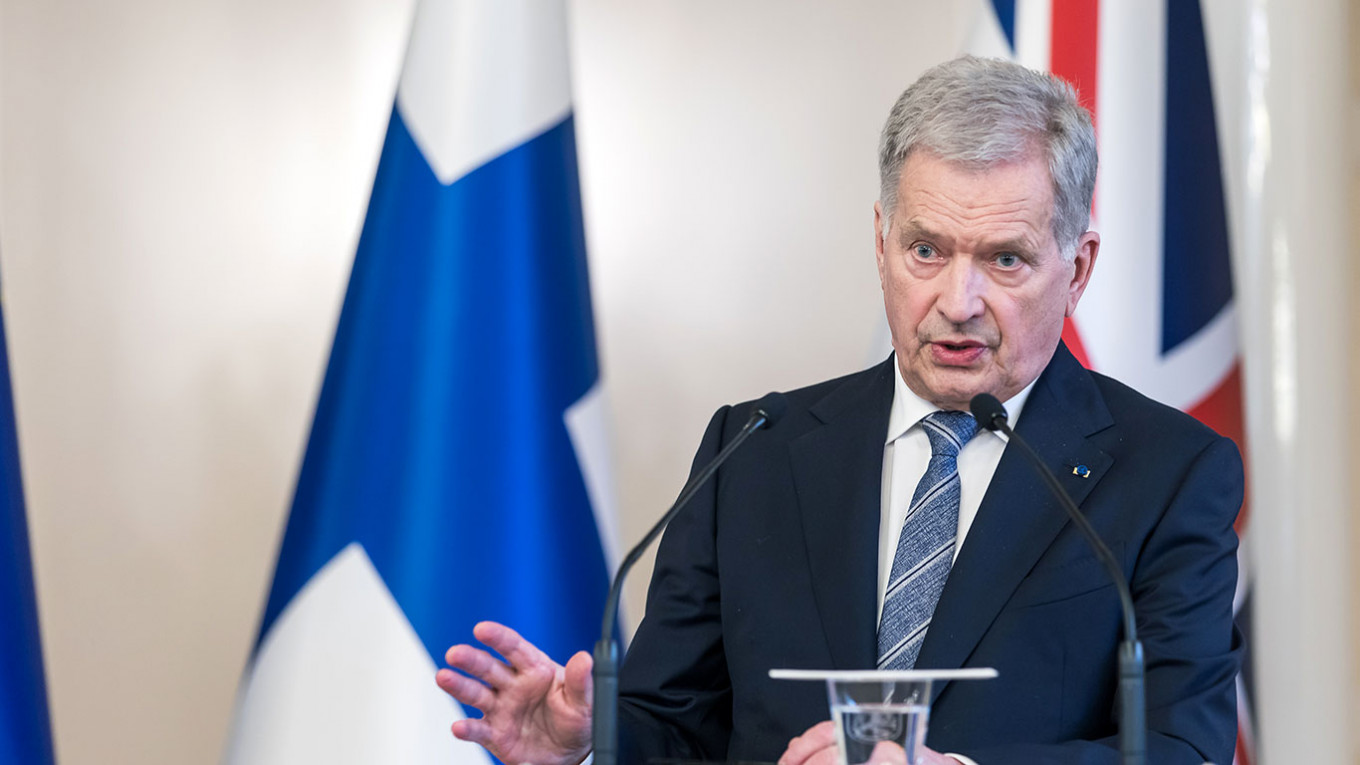
Finland’s possible NATO membership “definitely” threatens Russia’s security, the Kremlin said Thursday, adding that Moscow is ready to take further steps to “balance the situation.”
Finnish President Sauli Niinisto and Prime Minister Sanna Marin said their country must “apply for NATO membership without a delay” in a joint statement Thursday after Russia’s invasion of Ukraine shocked the Scandinavian country. Helsinki is expected to announce a formal decision on a membership bid this weekend.
“Another expansion of NATO does not make our continent more stable and secure,” Kremlin spokesman Dmitry Peskov told reporters.
“NATO is moving toward us. That’s of course why all of this will warrant a special analysis and the development of necessary measures needed to balance the situation and guarantee our security,” he continued.
Peskov noted the exact “measures” that Russia takes will depend on the exact nature of NATO’s expansion and how closely the additional military infrastructure will be placed in relation to the Russian borders.
Russia’s Foreign Ministry, in turn, warned that Moscow would be “forced to take reciprocal steps, military-technical and other, to address the resulting threats to its national security.”
“Finland’s accession to NATO will cause serious damage to Russian-Finnish bilateral relations and [threaten] preservation of stability and security in the northern European region,” it said.
Foreign Minister Sergei Lavrov said earlier this year that “military-technical measures” taken in response to security threats “imply the deployment of military hardware.”
The Foreign Ministry added that it believes Finland’s NATO membership will stand in violation of the 1947 Paris Peace Treaty and the 1992 Russian-Finnish bilateral relations treaty.
“Taking into account the current indifference of the collective West toward international law, this behavior is the new normal,” the statement concludes.
Finland, which shares a 1,300-kilometer border with Russia, has long maintained neutrality and sought to play the role of an intermediary between Moscow and the West.
The Scandinavian country stepped up its cooperation with NATO following the 2014 Russian annexation of Crimea.
Discussions on whether to consider membership in the Western military bloc ignited when Russia sent troops into Ukraine in February, and polls showed a surge in public support for joining NATO.
Russia has cited NATO’s expansion eastward as one of its reasons for invading Ukraine.